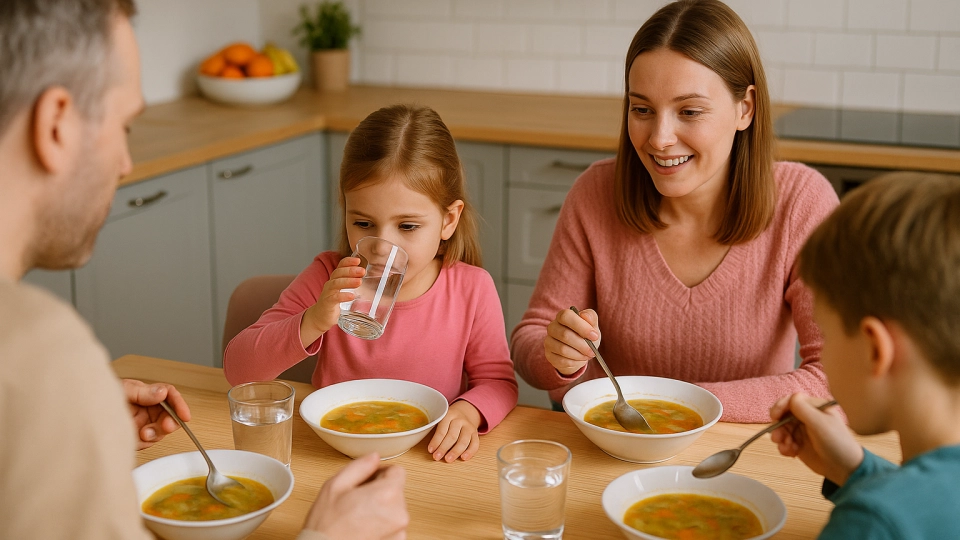The health of our children is a priority. Today, when there is so much fast food and sugary drinks everywhere, it's increasingly difficult to keep the youngest generation on the right nutritional path. Teaching a child to eat fruit and vegetables and to drink plain water is one of the biggest challenges parents face.
1. Why are fruit and vegetables important for children?
Vegetables and fruit are rich sources of vitamins, minerals, and fiber that are essential for children's growth and development. Each kind contains specific nutrients that support different bodily functions. For example, carrots are rich in beta-carotene, which supports eyesight, while spinach contains iron that's important for making red blood cells. Fruit also provides vitamin C and fiber.
The health benefits of eating fruit and vegetables are well documented. It helps prevent childhood obesity, supports heart health, and strengthens the immune system. They also contain antioxidants that fight free radicals and protect children's bodies from various illnesses. A varied diet full of healthy foods helps maintain stable blood sugar levels and also helps maintain a sleep routine.
Children who consume a varied diet tend to develop a broader range of tastes and are more open to new foods. This contributes not only to healthier eating but also to a positive attitude toward food in general. They also naturally gravitate toward variety on the plate, a habit they can carry into adulthood.
2. Healthy eating for children
Despite the well-known benefits, the reality is that many children refuse to eat vegetables or fruit. It's important to understand why. It often comes down to texture, color, or taste, which are less appealing to kids than sweeter or less bitter foods. Children are naturally more inclined toward sweet flavors, which is challenging for parents trying to introduce vegetables into the menu. Encouragement and parents modeling healthy eating are key. Seeing parents eat these foods can motivate children and help them overcome initial resistance.
Family eating habits also have a big impact. Children are very aware of what other family members eat.
Kids love colorful, playful plates. Using cutters to shape vegetables into fun forms can help increase their appeal. Involve children in meal preparation and let them experiment with creating 'edible pictures' on the plate.
3. Why is plain water crucial for children?
Hydration is an often overlooked factor in children's health. Plain water is essential for the proper functioning of all bodily functions, including digestion, circulation, and regulation of body temperature. Adequate water intake also helps maintain energy and concentration, which is key for successful learning and play.
A common problem is children's preference for sweetened drinks, which contain high amounts of sugar and artificial additives. These drinks can have a negative impact on health, including an increased risk of obesity and tooth decay. Plain water is therefore the ideal choice for everyday drinking.
The recommended daily amount of water depends on the child's age, sex, and physical activity. Parents should ensure that children always have water available and encourage frequent drinking throughout the day. Parents should lead by example and show that water is a natural, everyday drink. Using cheerful water bottles can also make it easier for children to get used to water and make drinking fun. You can also flavor it with a little fruit, lemon, or cucumber.
Motivation and rewards, such as stickers or special praise for tasting a new type of fruit or vegetable, can be an effective way to encourage kids in the short term. However, it's important to limit these rewards to healthy options so we don't foster a dependence on sugary treats. Introducing fruit, vegetables, and plain water into a child's diet can be a challenge, but with patience and creativity it's achievable. The healthy eating habits children adopt early can help them maintain those habits into adulthood.

